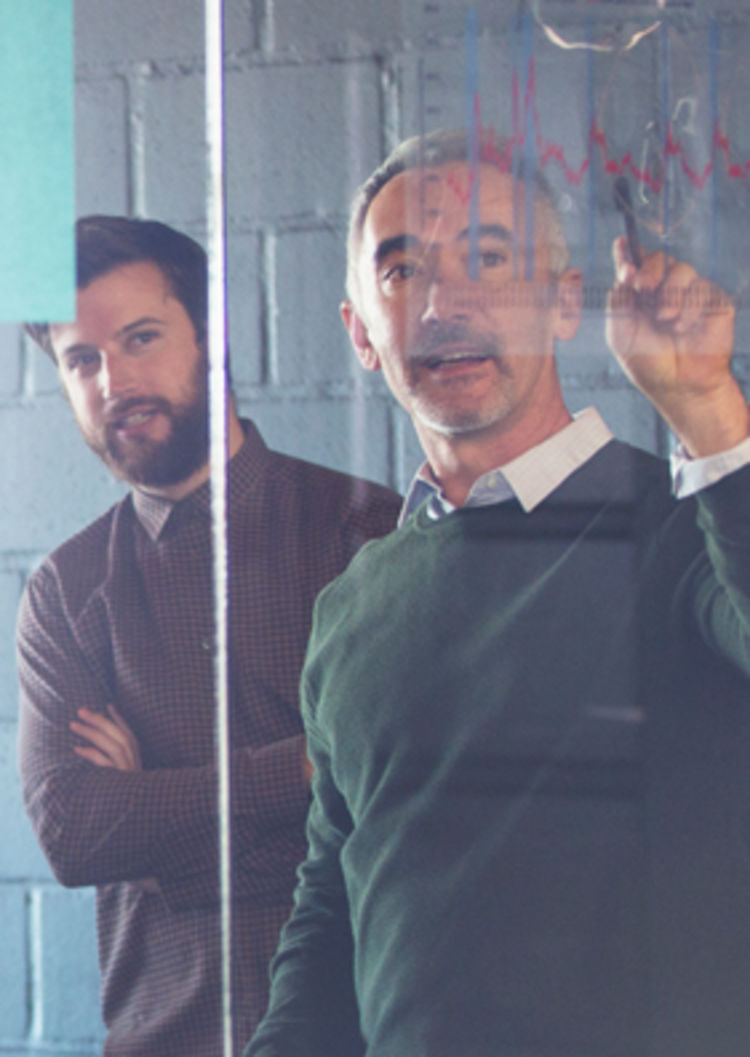Geodemographics - blogs and resources
Visit the Geodemographics Knowledge Base (GKB) for expert blogs and links to useful sources of geodemographic data and knowledge.
The MRS Census and GeoDems group champions new thinking and new talent; one area they have been particularly impressed with is the CDRC Masters Dissertation Scheme (MDS)
This programme offers an exciting opportunity to link students on Masters courses with leading retail companies on projects which are important to the retail industry. The scheme provides the opportunity to work directly with an industrial partner and to link students’ research to important retail and ‘open data’ sources. The project titles are devised by retailers and are open to students from a wide range of disciplines.
MRS CGG are proud to have been granted permission to publish abstracts from the dissertations and we are sure the students have a great future ahead of them.
This abstract is by Owen Hibbert
Title: Assessment of Potential Library of Things Locations - Modelling the propensity of the population of London to borrow rather than buy
Academic Institution: University of Leeds
Industry Sponsor: Library of Things
Background and Motivation
The aim of this project was to produce a borrowing potential scoring system, based on numerous factors. This task is important because the circular economy boosts local communities, strives for universal access and minimises environmental impacts[1].
Related Work
The Library of Things (LoT) is a social enterprise, which loans everyday household items, saving the consumer money and reducing waste[2]. These goals align with the circular economy, however only 10% of the global economy is circular[3].
“Global environmental problems demand a change in consumer behaviour”[4]
N.Ameli (2017,p.3294)
It is projected that by 2050, 55% of the global population will resideincities[5]. There is a corresponding estimated increase in global material consumption, of 100 billion tonnes by 2050[6]. A concerning 80% of household items are used in less than a month[1]. Moreover, the production phase of household items, use upto 90% of the products energy production in its lifespan[4]. Therefore, the LoT provides a platform to minimise this waste. Moreover, circular economy focused enterprises can promote social equity, providing access for those who cannot afford a product outright, and act as a hub for the local community[2].
However, the motivations behind participation in access - based consumption schemes are largely unknown, with limited studies conducted so far, of which the majority have been qualitative in nature[7]. Therefore, there is a gap in the literature on the circular economy. This dissertation aimed to address this gap, through conducting quantitative research, analysing a range of variables that may reflect use or lack of use of circular economy initiatives.
Aim/Research Question(s)
Overall Aim: Establish where LoT locations would be best placed in London to maximise the benefits of the circular economy.
Forming the following RQs:
1) What do the consumer and store statistics of existing LoT’s demonstrate?
2) Which demographics are most likely to use a LoT?
3) How can the findings from this analysis be used to form an overall score card of locations?
Data
The data utilised in this investigation primarily consisted of open source data. This included London Datastore, CDRC and ONS data for demographic, transport, and retail analysis, which is available at different spatial scales (e.g.Borough,LSOA,MSOA). Borrowing data provided by the LoT included customer data, detailing the item loaned, costs, spatial information, date of loan and site locations. This was used to define catchment areas, to analyse where customers have visited from. This data was also used to produce the dependent variable for the regression analysis. Time-series analysis, using through the door footfall, also highlighted the existing stores performance.
METHODS
The focuses of this investigation were, demographics, consumer behaviour, retail trends, accessibility and footfall. Spatial and retail analysis took place, by developing catchment areas, and analysing the location of the stores to other retail sites. Machine learning and propensity modelling approaches including OLS regression, GWR and K-means clustering analysis were used in the analysis of the demographic, accessibility and consumer data. The regression analysis highlighted the statistically significant variables to the dependent variable (number of customers per LSOA), and K-Means clustering, grouped these variables. This demonstrated the propensity of the population to use an LoT based on existing consumer data. This culminated in the production of an interactive map, where a user can click on an LSOA, returning a fact file based on the likelihood of the area to use a LoT.
REFERENCES
[1] Ellen Macarthur Foundation., (2017). ‘Cities and the Circular Economy’. [online] Available at: https://archive.ellenmacarthurfoundation.org/explore/cities-and-the-circular-economy[Accessed: 15/06/2022]
[2] Libraryofthings., (2022). ‘Why Library of Things’. [online] Available at: https://www.libraryofthings.co.uk/why [Accessed: 15/06/2022]
[3] Circle Economy., (2020). ‘The Circularity Gap Report’. [online] Available at: http://www.circularity-gap.world/2020 [Accessed: 16/06/2022]
[4] Ameli, N., (2017). ‘Libraries of Things as a new form of sharing. Pushing the Sharing Economy’. Design Journal, 20, pp.3294-3304.
[5] OECD/EC., (2020). ‘Cities in the World: A New Perspective on Urbanisation’. OECD Urban Studies, Paris, https://dx.doi.org/10.1787/d0efcbda-en.
[6] Circle Economy., 2018. The Circularity Gap report. [pdf]. Circle Economy. Available at: https://www.circle-economy.com/resources/the-circularity-gap-report-our-world-is-only-9-circular [Accessed: 12/08/2022]
[7] Lawson, S. J., Gleim, M. R., Perren, R. and Hwang, J., 2016. Freedom from ownership: An exploration of access-based consumption. Journal of Business Research, 69(8), pp.2615-2623.

Visit the Geodemographics Knowledge Base (GKB) for expert blogs and links to useful sources of geodemographic data and knowledge.


Our newsletters cover the latest MRS events, policy updates and research news.
0 comments